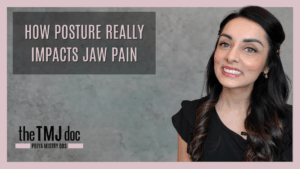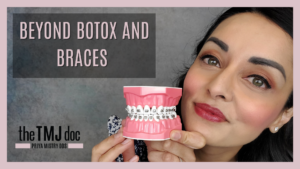Ear pain doesn’t always mean there’s an infection. In fact, many individuals who believe they have recurring ear problems are actually experiencing symptoms of temporomandibular joint (TMJ) dysfunction. At TMJ Doc in Vancouver, WA, it’s not uncommon for patients to be referred by medical doctors after ear exams reveal no sign of infection—just unexplained discomfort.
The close relationship between the jaw joints and the ear structures means that TMJ issues can often be mistaken for ear-related conditions. Understanding the difference is key to getting the right treatment.
Why TMJ Issues Feel Like Ear Infections
The TMJs are located just in front of the ears, and the muscles and nerves in this area are closely connected. When the jaw is misaligned or under strain, the resulting tension or inflammation can radiate to the ears. This may lead to:
- A feeling of fullness or pressure in the ears
- Dull or sharp ear pain
- Ringing or buzzing sounds (tinnitus)
- Mild hearing changes
- Discomfort when opening the mouth wide or chewing
These symptoms can easily mimic an ear infection, especially when there is no visible swelling or drainage.
How to Tell the Difference
While only a qualified healthcare provider can diagnose TMJ dysfunction or an ear infection, there are some signs that may suggest the issue is jaw-related:
More Likely TMJ if:
- There is jaw pain, clicking, or limited movement
- Pain worsens when chewing, yawning, or talking
- Headaches, neck tension, or facial discomfort are also present
- No fever or signs of active infection are detected
- Antibiotics don’t improve symptoms
More Likely an Ear Infection if:
- There is fever, swelling, or drainage from the ear
- Pain is sharp and sudden
- Symptoms improve with antibiotics
- It’s accompanied by cold or flu symptoms
Many patients with TMJ dysfunction are misdiagnosed with chronic ear infections, especially when symptoms keep returning but no infection is found.
Finding the Real Source of Pain
At TMJ Doc in Vancouver, every patient receives a detailed evaluation that considers the jaw, bite, posture, and medical history. If TMJ dysfunction is determined to be the cause of ear pain, treatment is focused on relieving pressure, restoring jaw balance, and reducing inflammation in the area.
This may include the use of custom oral appliances, muscle therapy, and other supportive techniques to bring relief without the need for repeated antibiotics or unnecessary procedures.
Think It’s an Ear Infection? It Might Be TMJ
If you’re experiencing ear pain that isn’t responding to treatment, TMJ Doc in Vancouver, WA can help identify whether your jaw might be the true source of discomfort. Contact us today to schedule a consultation and explore effective, non-invasive solutions.







